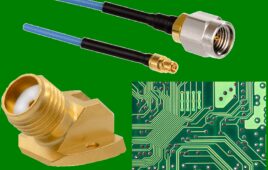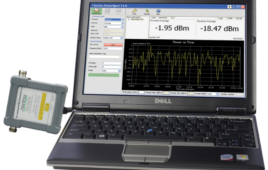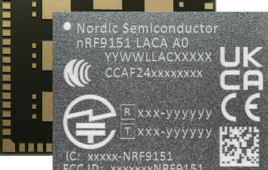Toshiba America Electronic Components, Inc., a committed leader that collaborates with technology companies to create breakthrough designs, today announced the launch of a new high-speed photocoupler that offers protection against extreme operating temperatures. The TLP2768A is capable of sustaining data rates up to 20 Mbps, making it suitable for use in high-speed communication interfaces in factory automation systems, measurement and control equipment and plasma display panels.
The TLP2768A features an operating temperature range of -40 to 125°C, enabling it to be used in increasingly compact industrial equipment that contains a greater density of components and therefore has higher internal temperatures. An open-collector output allows for both sink and source drive implementations. The TLP2768A supports both 3.3 and 5.5V power supplies, making it compatible with a wide range of existing industrial applications as well as ensuring it meets the needs of new and emerging low-voltage designs.
Toshiba’s TLP2768A high-speed photocoupler consists of a high-output GaAℓAs light-emitting diode coupled with integrated high gain, high-speed photodetectors. It features an inverter-logic output and operates over an extended temperature range while complying with the reinforced isolation class requirements of international safety standards. Housed in Toshiba’s ultra-thin S06L package, the TLP2768A offers a maximum height of just 2.3mm, which means a thickness reduction of approximately 45 percent, yet achieves a very high minimum isolation voltage rating of 5000Vrms. The S06L package is able to maintain creepage and clearance distances up to 8mm.
Key Features
- Inverter logic type (open collector output)
- Package: SO6L
- Operating temperature: -40 to 125°C
- Supply voltage: 2.7 to 5.5 V
- Data transfer rate: 20 Mbps (typ.) (NRZ)
- Threshold input current: 5.0 mA (max)
- Supply current: 4 mA (max)
- Common-mode transient immunity: ±20 kV/ µs (min)
- Isolation voltage: 5000 Vrms (min)
- Safety standards: UL, cUL, and VDE-approved




